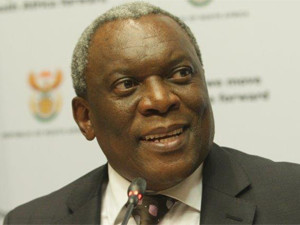
In the next 30 days, the Department of Telecommunications and Postal Services plans to finalise "the long and transparent partnership" and appoint the lead implementation agent for SA Connect.
This is according to telecommunications and postal services minister Siyabonga Cwele, speaking at the Southern Africa Telecommunications Networks and Applications Conference (SATNAC) in Hermanus, Western Cape. The minister reiterated government's broadband policy rollout is on track, as his department continues its aim to "accelerate the delivery of broadband to government offices, communities and SMMEs".
"The groundwork in the eight pilot district municipalities has commenced in collaboration with Telkom and we are well on a path to ensure all South Africans, particularly those in the rural areas, have access to broadband connectivity," according to Cwele.
As part of the implementation of phase one, the department set out to connect 1 296 government facilities in the eight districts. However, the DTPS told ITWeb last month that it had only developed "draft technical specifications taking into consideration the infrastructure and technologies available" for phase one of the digital development plan.
The minister, however, said the second phase of connectivity will begin in the coming financial year and run until 2020, when all government offices in South Africa will be connected to broadband.
"As we connect all government offices to drive e-government, we envisage increased uptake and use of ICTs, and ultimately all South Africans will be a part of this digital revolution.
"During my visits to the eight pilot districts for broadband rollout, I interacted with local entrepreneurs who were provided with connectivity and have been able to move from trading only in perishable goods, such as fruit and vegetables, to trading in high value goods, such as airtime and electricity."
According to the minister, the department has also finalised the National ICT Policy Review.
"We are working towards aligning the sector's legal framework with the recommendations of the review to enable the rapid deployment of broadband infrastructure, to create open access networks that will reduce the duplication of infrastructure and direct competition towards services, encourage the expansion of local manufacturing of ICT goods and SMME growth, and direct the allocation of spectrum as a scarce resource for national growth."
The minister said the Internet remains the key driver of technology today and runs applications for virtually all aspects of society.
"[The Internet] is a key part of our lives: the 2012 Boston consulting group study shows people are willing to give up food, alcohol, cars and even sex instead of the Internet," said the minister in his speech.
The minister reiterated broadband is a "critical national resource, a vital part of the national infrastructure and one of the key drivers of socio-economic development".
The minister highlighted the vast improvements that have been made in terms of Internet penetration, saying 15 years ago Africa only had Internet penetration of 0.78%.
"Today, African Internet penetration has grown to about 21%, with Tunisia, South Africa and Egypt leading with about 50% penetration," according to Cwele.
"In the mid-90s, there were around 600 000 mobile phones in Sub-Saharan Africa and today it is estimated we have more than 750 million mobile phones. This rapid adoption of mobile phones in Sub-Saharan Africa has ensured increased access to basic voice communications and thus we have achieved considerable progress in closing the digital divide in voice services."
Cwele said a vital question remains for government, industry and academia: "How do we ensure we play a meaningful role in the global digital revolution in order to be foster a vibrant and inclusive knowledge economy and information society that is envisaged by our National Development Plan?"
He believes accelerating government's SA Connect strategy will help to address this.
Share